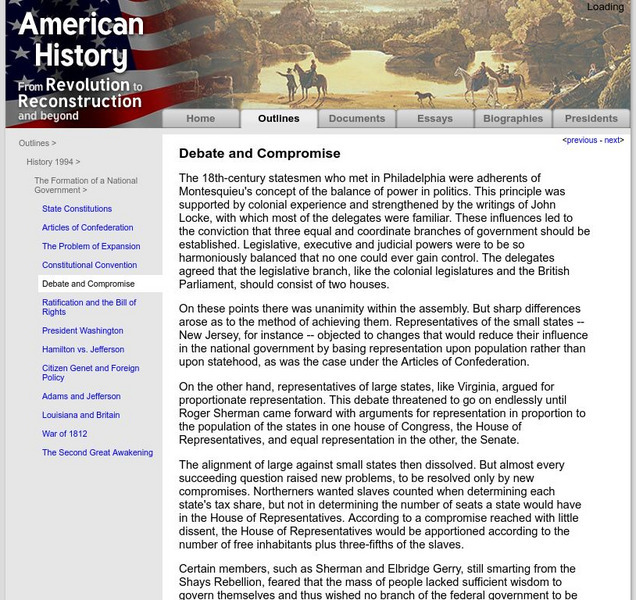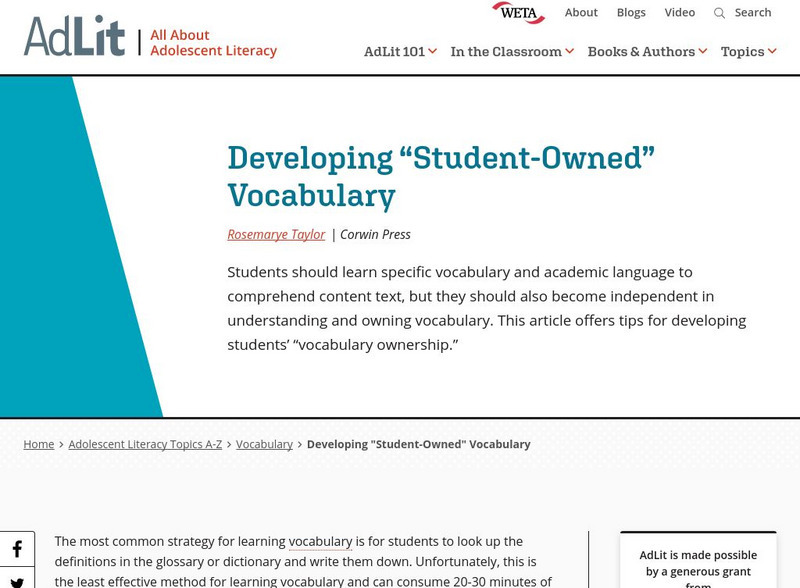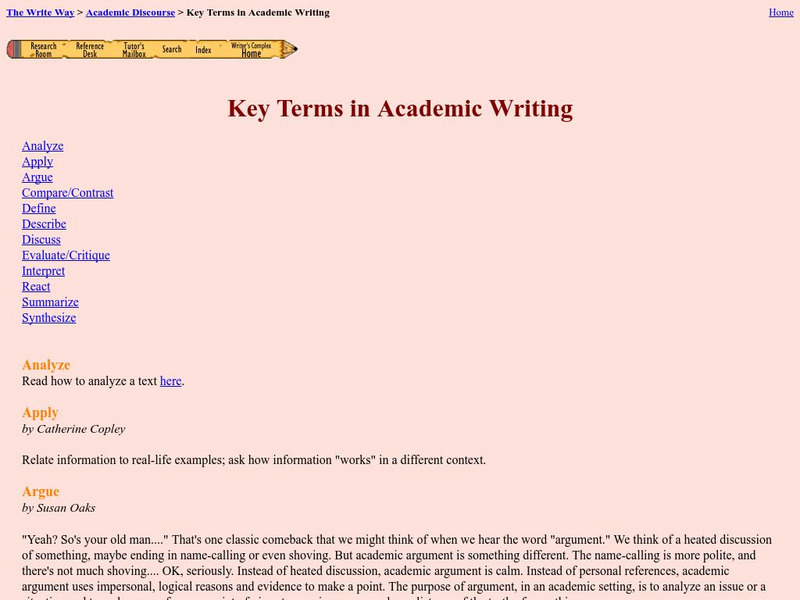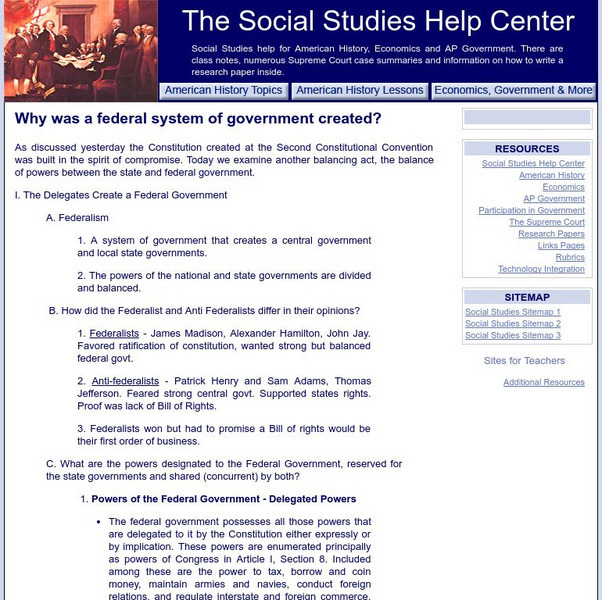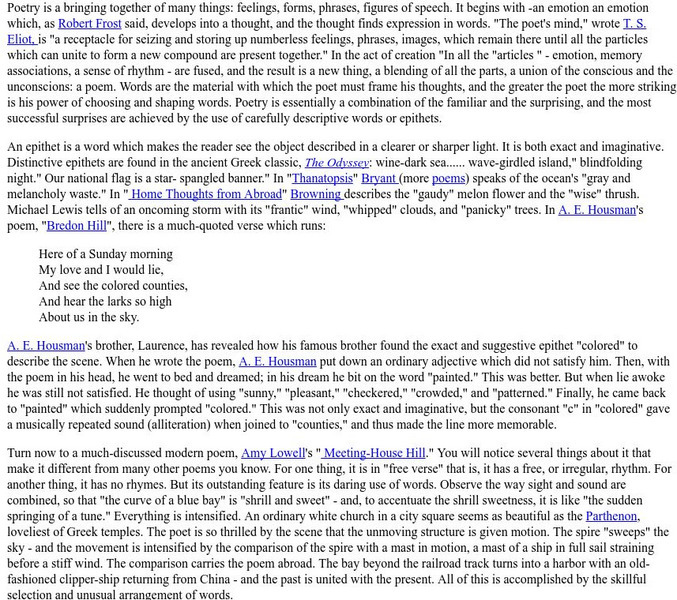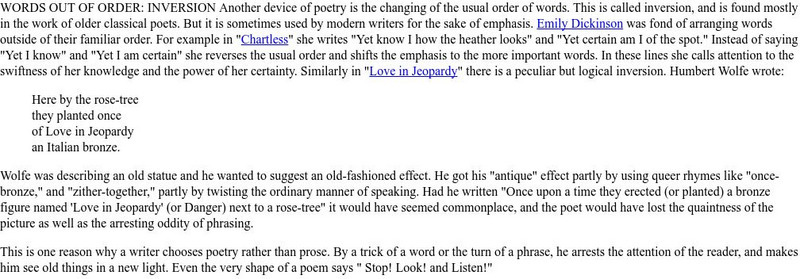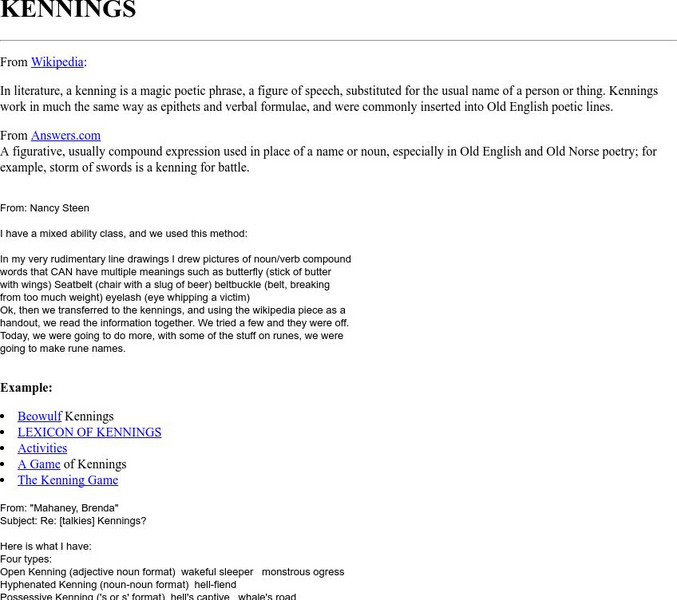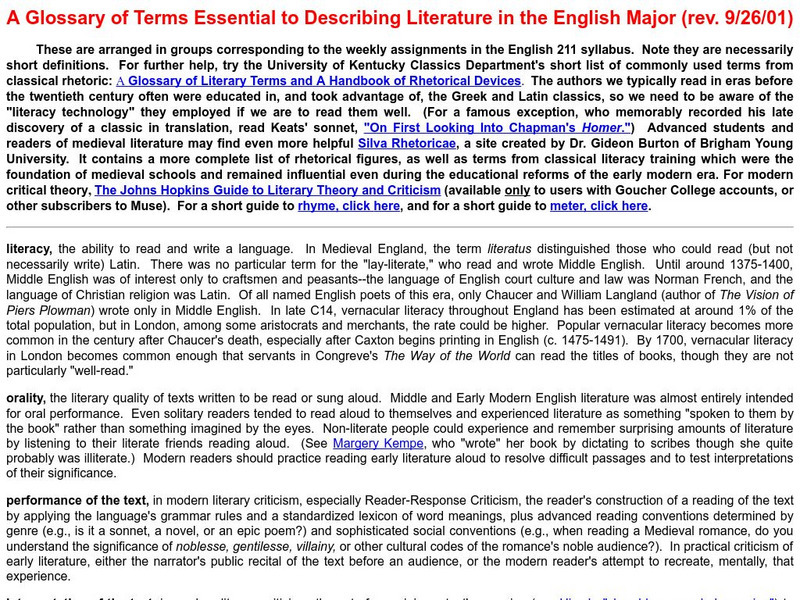University of Groningen
American History: Outlines: Debate and Compromise
The 18th-century statesmen who met in Philadelphia were adherents of Montesquieu's concept of the balance of power in politics. This principle was supported by colonial experience and strengthened by the writings of John Locke, with...
Digital History
Digital History: Drafting the Constitution
Those writing the Constitution had many issues to deal with in forming a document to govern the country. One thorny issue was the status of the states in regard to representation in the federal legislature. Read about the Virginia Plan...
AdLit
Ad lit.org: Developing "Student Owned" Vocabulary
Students should learn specific vocabulary and academic language to comprehend content text, but they should also become independent in understanding and owning vocabulary. This article offers tips for developing students' "vocabulary...
SUNY Empire State College
Key Terms in Academic Writing: Key Terms in Academic Writing
This site offers a clear definition of what is expected in a definition essay. It also provides a link to a sample paper, with instructor's comments, as well as a link to the Purdue University On-Line Writing Lab.
Social Studies Help Center
Social Studies Help Center: Why Was a Federal System of Government Created?
A summary in outline format of the factors related to the development of a federal government in the United States.
Ted Nellen
Cyber English (By Ted Nellen): Analogy
This is a glossary entry for the term "Analogy" including the definition, an example, and links to more information.
Ted Nellen
Cyber English (By Ted Nellen): Asyndeton
This is a glossary entry for the term "Asyndeton" including definitions, an example, and links to more information.
Ted Nellen
Cyber English (By Ted Nellen): Characterization
This is a glossary entry for the term "Characterization" including a definition and the characteristics to be developed: Character's appearance, actions, thoughts, voice, and reaction from others.
Ted Nellen
Cyber English (By Ted Nellen): Chiasmus
This is a glossary entry for the term "Chiasmus" including a definition and examples.
Ted Nellen
Cyber English (By Ted Nellen): Epithet
This is a glossary entry for the term "Epithet" including definitions and examples from a number of poets.
Ted Nellen
Cyber English (By Ted Nellen): Inversion
This is a glossary entry for the term "Inversion" including definition and literary examples.
Ted Nellen
Cyber English (By Ted Nellen): Kennings
This is a glossary entry for the term "Kennings" including multiple definitions and examples including links to more examples.
Ted Nellen
Cyber English (By Ted Nellen): Syllepsis
This is a glossary entry for the term "Syllepsis" including definitions and links to more information and examples.
Towson University
Towson University: Ows: Commonly Confused Words: Connote / Denote
This entry focuses on the commonly confused words connote and denote including providing an explanation, examples, and a link to a quiz/exercise.
Writing Fix
Writing Fix: Writing Scientific "Recipes"
Adapted from a lesson in the book 51 Wacky We-Search Reports by Barry Lane, this lesson asks students to read several recipes to gain an understanding of how they are written and the types of words they use. Then students demonstrate...
US Government Publishing Office
Ben's Guide to u.s. Government: Learning Adventures: How Laws Are Made: The Language of the Law
Learning Adventures from Bensguide summarizes the process of lawmaking outlined in the U.S. Constitution and provides links to a glossary of legislative terms and Congressional Resolution from 2003.
US Government Publishing Office
Ben's Guide to u.s. Government: Learning Adventures: Tracking a Bill From Beginning to End
Learning Adventures guide on how a bill becomes a law summarizes the legislative process and makes it understandable for students of all ages. With links to U.S. Government publications.
iCivics
I Civics: Anatomy of the Constitution
This instructional activity gives an article-by-article overview of the structure and function of the U.S. Constitution. Students learn about the duties and powers of the three branches, the amendment process, and the role of the...
Thomas Jefferson National Accelerator Facility
Jefferson Lab: Reading Passages: The Three Branches of Government
Read and fill in the blanks of this passage explaining the three branches of government. Each blank has a drop-down menu with choices. When you finish, click CHECK MY ANSWERS. If you pick a wrong answer, the right answer will be...
Other
Mo Dept. Of Ed.: Analyzing and Evaluating Literary Works
Lesson plan designed for eleventh graders. Students analyze and evaluate a short story for elements of literary works such as theme, mood, word choice, imagery, tone, and main idea. Includes a student handout and a scoring guide. It...
Other
Us Congress: Congress, the Court, and the Constitution
Transcript of a congressional hearing, held in 1994, to discuss whether Congress had given too much power to the Supreme Court, against the express intent of the Founding Fathers. This transcript is lengthy but informative, containing...
Other
Goucher College: A Glossary of Terms Essential to Describing Literature
An exhaustive list of literary terms and techniques with explanations that often include examples, prepared for a college-level survey course in English literature.
Other
Write Design Online: Glossary of Terms
This is a comprehensive glossary of terms pertaining to literature, writing, art, graphic design, and technology.
Other
State of Michigan: How a Bill Becomes a Law [Pdf]
Learn the steps involved in making a new law. The document explains how bills become laws in the state of Michigan, but the process is the same as it is for other states as well.


